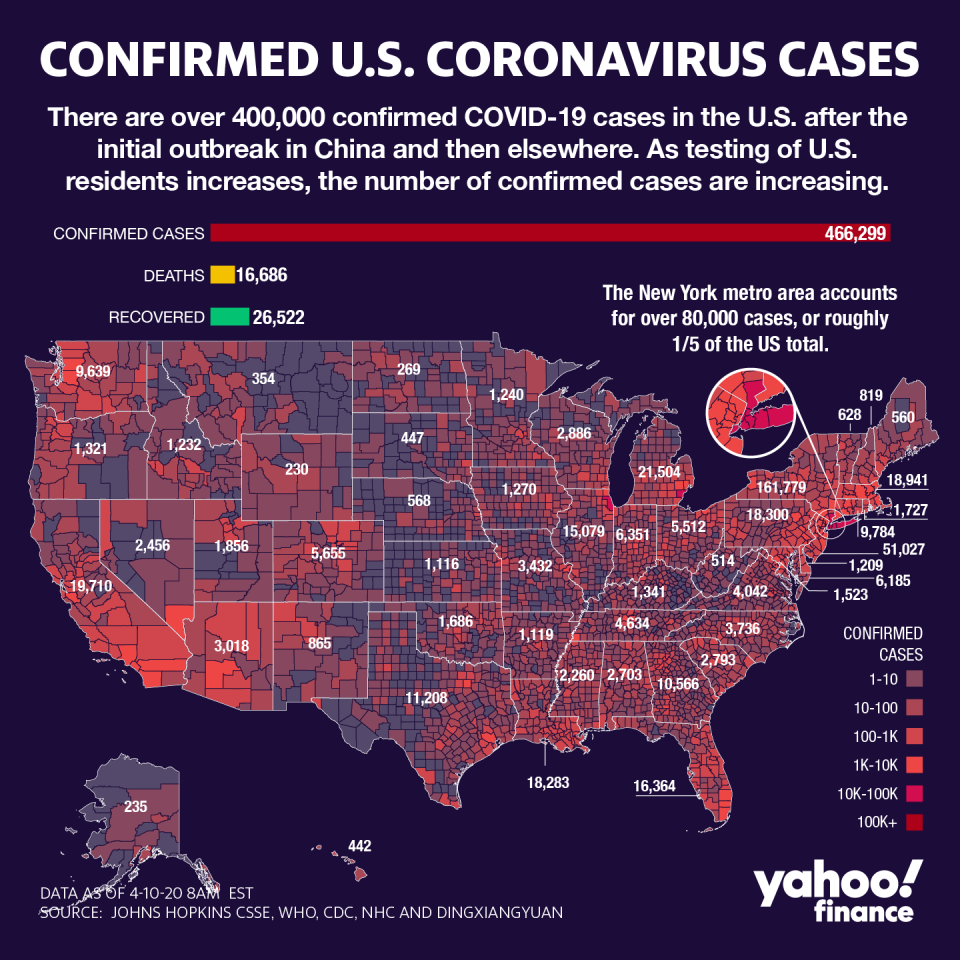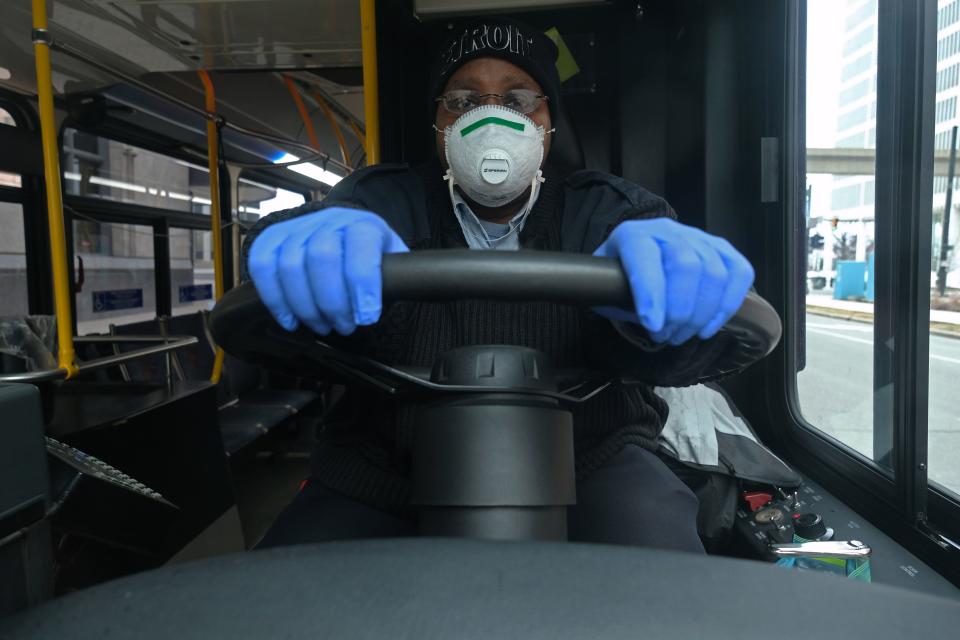Ex-health official: Coronavirus outbreak forcing Detroit residents to make an 'impossible choice'
Residents of Detroit, who are now on the front lines of one of the worst outbreaks in the country, are being forced to confront an “impossible choice” between earning a living and staying healthy, one of the city’s former health officials told Yahoo Finance.
According to data collected by Johns Hopkins, Michigan currently has more than 21,500 cases and 1,076 deaths. Detroit’s surrounding counties of Wayne, Oakland, and Macomb accounting for approximately 85% of the state’s deaths. Yet despite the fact that the Motor City is not as densely populated as other hard-hit urban areas like New York City and Los Angeles, the virus is still spreading at a rapid rate.
Dr. Abdul El-Sayed, an epidemiologist and former health director of Detroit, told Yahoo Finance that it’s because the city’s predominantly black and working class residents are being forced to choose between earning a livelihood and their health.
“It’s not just about the pathogen but it’s also about the host and the environment,” El-Sayed said on Thursday. Across the nation, more concerns have surfaced about why African Americans communities are being hammered by new infections.
“For right now, when you think about why it is that Detroit is getting pummeled so hard... it’s because you’ve seen the environment, our society, pummeling the host for a very long time,” said El-Sayed, a Democrat who ran for the party’s gubernatorial nomination in 2018.
Low wages and lack of basic necessities are forcing residents to make a choice “to save their livelihood versus staying home to save their lives [and] that is an impossible choice that too many people face,” the physician said.
“We’re seeing that happen to folks and we’ve got a responsibility to understand why it’s happening and what we need to do about it,” he added.
The toll on Michigan’s economy

Cities across the country are working tirelessly to stop the spread of COVID-19 as the number of cases in the U.S. creeps toward 500,000.
Locally, much of the focus has been on Detroit’s automotive industry, as the sector is a crucial pillar in the economic success of the region. And since it’s harder for manufacturing workers to stay at home, many continued to show up to work until the city’s big three automakers— Ford (F), Fiat Chrysler (FCAU) and General Motors (GM) — made the decision to suspend production three weeks ago.
The shutdown of manufacturing plants and businesses nationwide has had a devastating impact on the labor market, with Michigan recording a drastic number of job losses. The state was the second hardest hit when controlling for the size of each state’s labor force for the week ending April 4, recording 78 jobless claims per 1,000 workers.
Amid a debate over when Americans can get back to work and normalize economic activity, some of the automakers are planning to open factories within a few weeks.
While signs have emerged that new coronavirus cases may be leveling off in some of America’s hardest-hit cities, there are still calls for a significant ramp up in testing in order to successfully flatten the curve. Microsoft (MSFT) founder Bill Gates warned recently that the U.S. needs to get its coronavirus testing sorted in a timely manner, or “we’re in big trouble.”
El-Sayed echoed that sentiment, saying mass diagnostic capabilities are necessary to ensure COVID-19 doesn’t have a deadly second wave.
“In order for us to really be able to tamp this pandemic down and make sure there’s not a resurgence in cases and another wave, we’re going to need mass testing capacity,” he told Yahoo Finance.
A peak is coming

Detroit currently has the third highest number of Coronavirus-related deaths in the country, behind only New York and New Jersey.
While the number is still very high, there are signs that the number of new cases are slowing. El-Sayed expects the city’s new cases to peak in the coming weeks — but is quick to warn that the worst isn’t over yet.
“Even when we let go of social distancing, we need something to be able to make sure that this doesn’t start spreading again and we get yet another peak,” he said. “So we’re still not out of the woods… the next phase of dealing with this pandemic is going to require testing, perhaps even more than we need it right now.”
Seana Smith is the anchor for The Ticker.
READ MORE: